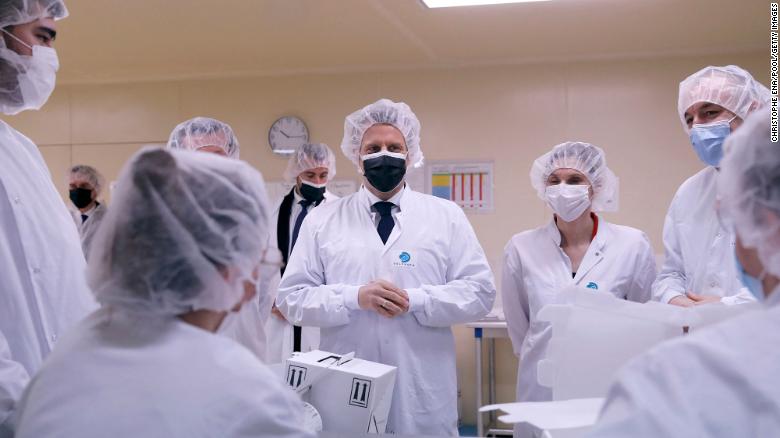Half of Europeans vaccinated yet Delta variant continues to make waves
By Emmanuel Nweke
July 22, 2021, 11:07 p.m.

As Europe struggles with a rising number of coronavirus cases caused by the Delta Variant, several countries are making vaccinations compulsory for health care workers, and some leaders are even considering making shots mandatory for all.
France and Greece both announced new vaccine requirements on Monday, following in the footsteps of Italy, which made vacciations compulsory for health employees in April. The UK government, which is pushing ahead with its unlocking plan despite strong warnings from experts, has previously said it will mandate shots for care home staff from October.
More than half of all European adults are now fully vaccinated, the European Union said, but the milestone came as countries across the world are battling fresh outbreaks blamed on the fast-spreading Delta variant. The EU said on Thursday that 200 million Europeans had been fully vaccinated, more than half of the adult population but still short of a 70 percent target set for the summer.
The fresh data came as German Chancellor Angela Merkel said cases in her country were rising “exponentially” and she urged more Germans to get jabs. “The number of infections has been rising again for a few days now, with a clear and, in my opinion, worrying momentum. The whole thing is driven by the Delta variant of the coronavirus,” she said at a Berlin news conference on Thursday.
Germany has seen an incidence rate of 12.2 new cases per 100,000 people over the past seven days – more than double the rates in early July. “With a rising incidence rate, it could be that we need to introduce additional measures,” she said.
German Chancellor Angela Merkel has warned that Europe is "on thin ice" as the Delta variant of Covid spreads on the continent.
Her warning came as EU health officials said the variant would account for 90% of the bloc's cases by late August. The spread could disrupt plans for lifting restrictions during the summer.
The Alpha variant, first discovered in the UK, hit Europe hard early this year and Delta, now dominant in the UK, is thought 40%-60% more transmissible. Andrea Ammon, the director of the European Centre for Disease Prevention and Control (ECDC), said on Wednesday that the spread of the Delta variant showed the importance of speeding up vaccinations in Europe, as "preliminary data shows that it can also infect individuals that have received only one dose of the currently available vaccines".
Two doses offered "high protection" against the Delta (B.1.617.2) variant, she added.
On Wednesday Mrs Merkel called for a more co-ordinated EU response and said all member states should quarantine arrivals from the UK considering the dangers of the spread of Delta. The UK is not on the EU's list of safe countries, due to the spread of Delta, but that list is not binding on member states.
UK Prime Minister Boris Johnson has said that while fully vaccinating people offered "a good way forward" for resuming travel, this summer would not be "like every other. This is going to be a more difficult summer to take a holiday".
Germany joins a number of European nations that have seen cases climb in recent weeks spurred by the Delta variant, first detected in India.
Here is how different parts of Europe are dealing with the threat of Delta.
France this week rolled out new rules requiring a so-called health pass for all events or places with more than 50 people before being extended to restaurants, cafés and shopping centres in August.
People need to show proof of vaccination or a negative test to gain access, after the country reported a new surge – more than 21,000 new cases on Wednesday, the highest level since early May.
The Italian government, also looking to contain a fresh surge in coronavirus cases, announced on Thursday that from August 6 people must present proof of immunity to access an array of services and leisure activities.
Cases are also soaring in the United Kingdom, where most restrictions were lifted this week, and on Thursday British supermarkets warned of possible food shortages because staff were being forced to self-isolate.
European Central Bank chief Christine Lagarde warned of growing economic uncertainty caused by the Delta variant, as the bank kept its vast stimulus for the eurozone firmly in place following a meeting of its 25-member governing council.
“The euro area economy is rebounding strongly,” Lagarde said, but the Delta variant could damp the post-lockdown recovery “in services, especially in tourism and hospitality”, she said.
Delta, first identified in India, now accounts for almost all new infections in the UK.






Comments